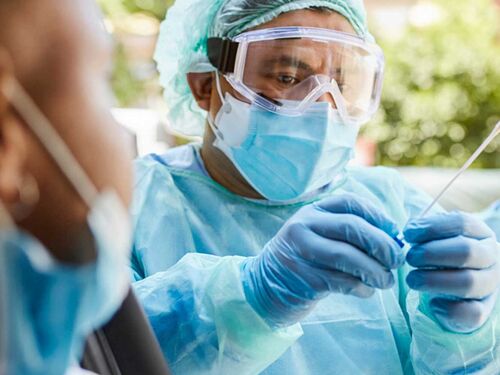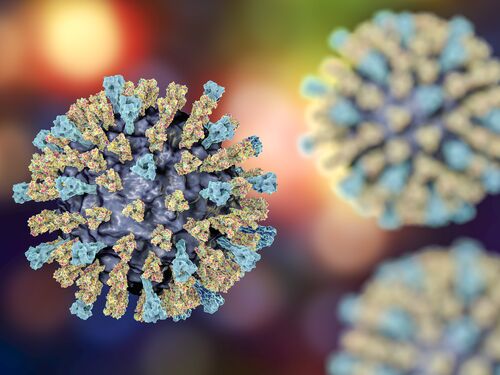Can a COVID-19 test tell me if I’m contagious?
Based on Science
A positive COVID-19 test only tells you that you have the novel coronavirus in your body but cannot tell how contagious you are.
Last update March 12, 2021
A test cannot tell how contagious you are.
Testing positive for COVID-19 means you have pieces of the virus in your body. However, a positive test does not always tell you whether or not you could spread the virus to other people. The test that uses a method called reverse transcription polymerase chain reaction (RT-PCR) to look for genetic material of the virus can return a positive result even after you no longer have an active infection but still have inactive (dead) pieces of virus in your body.
Another type of test for a current infection looks for proteins (antigens) from the novel coronavirus. If you receive a positive COVID-19 result from an antigen test and are experiencing symptoms, you are likely contagious. Also, antigen tests have a higher rate of false negatives, which is when someone gets a negative test result but actually has COVID-19. If you have a negative test result but are having or develop symptoms, you may need a second test.
Only active pieces of virus can infect other people. Studies suggest the number of active viral particles in your body—and therefore the chance that you could transmit the virus to others—is highest in the first week of a COVID-19 infection.
If you do have active virus in your body, you can release aerosols and droplets carrying the virus when you breathe, talk, sing, cough, or sneeze. If someone inhales these, they can catch COVID-19 from you. Scientists do not know how much of the virus someone needs to inhale to catch the virus.
If you test positive, there are steps you can take to protect your health and the health of others.
Some ways to protect your health include:
Watch for COVID-19 symptoms.
Get medical care if you have any emergency warning signs.
Follow instructions from your doctor or local health department.
Rest and drink plenty of water.
Some ways to protect others include:
Assume you are contagious, even if you do not feel sick. People who experience no symptoms can still spread the virus. Stay home and stay away from other people.
If you visit a medical clinic or call 911, tell the clinic or dispatcher that you have COVID-19.
Stay separated from others in your household, such as in a different room or part of your home. If you cannot isolate yourself, wear a mask that covers your nose and mouth.
Tell those you have had close contact with in the last few days that they may have been exposed to COVID-19.
Learn when it’s safe to be around others again after a COVID-19 infection.
ADDITIONAL RESOURCES
COVID-19 Responses and Resources – National Academies of Sciences, Engineering, and Medicine
COVID-19 Testing Overview – Centers for Disease Control and Prevention
COVID-19 Testing Toolkit – Center for Health Security at Johns Hopkins University
National Academies of Sciences, Engineering, and Medicine – Health and Medicine | Topic
More like this
Discover
Events
Right Now & Next Up
Stay in the loop with can’t-miss sessions, live events, and activities happening over the next two days.
NAS Building Guided Tours Available!
Participate in a one-hour guided tour of the historic National Academy of Sciences building, highlighting its distinctive architecture, renowned artwork, and the intersection of art, science, and culture.




